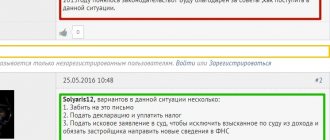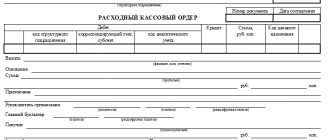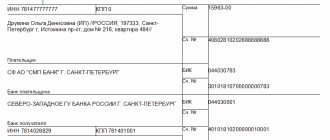Get a deferment from the tax office
Postponing your taxes will give you time to look for money. The tax office is aware of the crisis and is ready to provide various types of benefits. We have already written about who and how will be able to receive tax breaks during the coronavirus crisis.
If your business has suffered from the crisis, but the state does not plan to help, ask the tax authorities for a tax deferment or installment plan:
- The deferment will push back the tax due date. For example, you had to pay before December 31, 2021, but with a deferment you can pay until December 31, 2021.
- Installments will allow you to pay taxes in several payments. For example, you had to pay 120 thousand rubles by December 31, 2020; with installments, you can pay 10 thousand rubles every month until May 31, 2021.
For some taxes, the installment plan can be extended up to three years: these include corporate income tax, VAT, excise taxes, mineral extraction tax and water tax. Such an installment plan can be obtained if the amount of all accrued taxes amounts to more than 30% of the company’s income.
Here's how to get tax breaks
To get help from the tax authorities, you need to prove that the business is incurring losses. To do this, you will have to collect supporting documents. Conventionally, they can be divided into two groups: banking and economic.
Bank documents reflect the real financial condition of the company. You can order them through your personal account in Internet banking. This:
- Certificates about the balance of funds in the account.
- Certificates of monthly cash flows for the last six months.
- Certificates about the presence of unpaid payment orders, checks, letters of credit.
Business documents are contracts. They show that the company has counterparties who also need to be paid. The tax office needs a list of contracts with terms and amounts. You must attach copies of all contracts that you list to the list.
List of documents that need to be sent to the tax office:
- Application for deferment. Try to explain to the tax office why the organization needs a deferment. For example, you can attach a copy of the statements or make detailed calculations of business losses.
- Commitment. This is a written guarantee to the tax office that you do not plan to evade paying taxes.
- Payment repayment schedule. If you take an installment plan, tell the tax office how you will pay. Calculate the term and monthly amounts of payments so that the tax office agrees on a schedule according to which it will be convenient for you to pay.
- Certificates from the bank about the account balance, monthly turnover and the presence of unpaid payments.
- Agreements with counterparties.
Important: the ConsultantPlus website contains sample statements and obligations.
Documents can be sent through the Federal Tax Service electronic appeals service or by mail. Will respond within 30 days.
Personal income tax on an interest-free loan
If the lender receives from the borrower an amount equal to the original amount (specified in the loan agreement), then no economic benefit (income) arises, and accordingly, there are no grounds for taxation. As a result, personal income tax is not charged, since there is actually no income. However, if an organization provides an interest-free loan, then it is necessary to take into account that the recipient of the loan is already saving on the interest that citizens usually pay for loans. Therefore, according to tax legislation, this savings is direct income (material benefit), and personal income tax must also be paid on it.
Negotiate with counterparties
To save money on taxes, discuss new contract terms with your counterparties. For example, you can reduce the volume of deliveries, negotiate a delay, or ask for a discount. It is also beneficial for counterparties to renegotiate the terms, otherwise they will be left without buyers. Don’t be shy, the worst thing that will happen is that you will be rejected.
For example, Mikhail has a chain of coffee shops. According to the contract, he must pay by the end of May for five batches of coffee beans. But demand has fallen, the authorities have closed his coffee shop, and “coffee to go” does not even cover half of his expenses. To save money, Mikhail agreed with the supplier for two shipments per month instead of five, for example, until the end of August. The supplier will not be left without customers, and Mikhail will not overpay.
Another argument in favor of the new conditions is force majeure. In 43 regions, restrictive measures due to coronavirus were recognized as force majeure (the list of such regions is in the table on the ConsultantPlus website). If you work in one of these regions, then the counterparty will have to discuss new conditions with you, even if he does not want to. Take this opportunity to relieve your budget.
If the counterparty agrees, an additional agreement to the contract must be concluded. In the additional agreement, state the new conditions and their validity period. Verbal agreements do not work: in difficult times, even the most reliable counterparty can fail. Document everything.
Reduce credit burden
If the question is whether to pay taxes or pay off a loan, try to negotiate with the bank about a deferment or a revision of the terms of the loan. You can negotiate with the bank in different ways:
- Refinance loans. If the company has several loans, try combining them into one loan from another bank. The rate will be lower and there will be fewer payments. State banks are actively involved in refinancing - Sberbank, VTB, Promsvyazbank.
- Agree on a postponement. You can shift the payment deadline for several months under the condition that you will return the money after the quarantine is lifted. For example, agree with the bank that you will close payments for May, June and July 2021 by the end of January 2021. Unfortunately, if the company has ever had late payments, the bank most likely will not agree to a deferment.
- Review the terms of the loan. Sometimes it is more profitable to overpay in the long term than in the moment. For example, if an organization has a loan for three years with payments of 100 thousand rubles per month, agree with the bank to pay for five years at 60 thousand rubles. Banks are reluctant to renegotiate terms, but during a crisis they are more accepting of such things. If in normal times it was possible not to try, now it’s definitely worth trying. The total overpayment will be higher, but you will be able to save money during the coronavirus crisis.
It is better to refuse credits for paying taxes. A tax credit is a disservice to business. If a business requires a loan to pay taxes, it seems that such a business cannot be saved. We don't know for sure, think about it.
Personal income tax under a loan agreement
Personal income tax under a loan agreement is accrued if an organization or individual has made a profit and can dispose of the income. This is stated in Art. 210, and according to Art. 41 income refers to any economic benefit - and even income from individuals in the form of interest on a loan falls under this definition. Therefore, they are subject to the normal tax rate.
Interesting nuance: art. 208 of the Tax Code is used to qualify the source of income, and not to determine the circle of persons paying the tax.
Reduce business expenses
If you restructure your business processes, you can free up money to pay taxes. See what you can save on.
Staff costs. There are two options: laying off workers and switching to remote work. If you have a large staff of managers, it is better to cut 20-30% of employees. If there are many performers working, it is better to agree on remote work and a salary reduction.
Office maintenance. One option is to get rid of the office and transfer employees to remote work. If the remote option is not suitable, you can ask the landlord for a deferment or a discount until the end of quarantine. The landlord needs to write a letter and enter into an additional agreement to the lease agreement.
Important: If a company operates in an industry on the list of those affected by coronavirus, according to Law No. 98-FZ, landlords do not have the right to refuse a deferment.
Household expenses. Think about what expenses you can temporarily do without. Until the quarantine is over, for example, refuse office supplies, water and coffee in the office. Penny for penny, and in the end you will save up for VAT for June.
Accountants and lawyers. In order not to overpay an in-house or outsourced accountant, accounting can be done through online accounting. She calculates taxes herself, creates payment slips and reminds about payment. And instead of a lawyer on staff, you can use online consultations in your personal Internet banking account.
For example, with the help of online accounting at Delobank, entrepreneurs pay 5,800 rubles per year. A remote accountant asks for 15 thousand rubles per month. And for online assistance from a lawyer in Delobank you can pay 800 rubles instead of 5 thousand rubles for a consultation at a law firm. There are other similar services. To find yours, you need to try. And when to try, if not in a crisis.
Advertising. If the goal is not to earn money, but to save money, it is better to pause advertising campaigns. First, give up outdoor advertising on billboards and in shopping centers: during self-isolation there is no traffic, this does not work. If you advertise on Yandex.Direct, Google Ads or myTarget, check how the targets are set up.
You might want to add a new segment or make your audience description more specific. For example, advertise only to users who live in the nearest area, because only they will be able to come to the store. No one will travel from the other end of the city during quarantine, even if the product is unique and the prices are low.
What happens if you don't pay taxes
If you don’t pay taxes, the state will remind you of them with penalties. It’s also not worth deceiving the tax office: if you submit a return with a reduced amount of income, you will receive a fine. The tax office checks the chains of interconnected counterparties and the fraud will definitely be revealed - sooner or later.
Penalties and fines
If you fail to pay on time, the tax office charges a penalty in the amount of 1/300 of the rate of the Central Bank of the Russian Federation for the first 30 days of delay. For example, taxes were 100 thousand rubles overdue for 30 days. The Central Bank rate is 6%. This means that penalties are calculated according to the scheme “100,000 ÷ 300 × 0.06 × 30”. It will be 600 rubles for 30 days of delay.
If taxes are overdue for more than 30 days, then penalties from the 31st day of delay will be 1/150 of the rate of the Central Bank of the Russian Federation. For example, taxes of 100 thousand rubles were overdue not by 30, but by 60 days. We have already calculated the first 30 days - that’s 600 rubles. Penalties for the remaining 30 days should be calculated using the formula “100,000 ÷ 150 × 0.06 × 30.” It will turn out to be 1,200 rubles. In total, 1,600 rubles will be credited for 60 days.
Late fees are small. If you don't pay taxes for 2-3 months, there won't be many penalties. The bad thing is that for non-payment for more than 3 months, the tax office can suspend transactions on a bank account or go to court if there are a lot of taxes and penalties. It’s better not to cross the line between small savings and legal proceedings with the state.…
Important: penalties for each period are calculated at the Central Bank refinancing rate. If the rate is 6% in April and 6.5% in May, then penalties for April and May will be calculated separately.
If you still took a risk and submitted a return with a reduced amount of income, the tax office may arrange an audit after the quarantine is over. The inspector will find out that they tried to deceive the tax office, charge taxes on the remaining amount and add 20% to this amount in the form of a fine. If you added 100 thousand rubles, you will have to pay 120 thousand rubles.
The tax office will suspend transactions on the account
When an organization has unpaid taxes, the Federal Tax Service reports this in the electronic banking information system. This is an open service where any user can check information about a company’s debts to the tax authorities. After publication, the bank has the right to suspend operations on the client’s current account until he pays all taxes, penalties and fines.
Important: while the company is listed as a defaulter, other banks will not be able to open a current account for it.
If operations are suspended, the entire debt must be repaid. After 7-10 days, the tax office will remove the company from the list. To work with a current account again, you need to notify the bank that there are no more problems with taxes. The easiest way to notify is through your personal account on the bank’s website or online application. If there is no such function, you will have to write a notification letter.
Court and confiscation of property
If penalties, fines and suspensions on the current account do not bring results to the tax service, it will go to court. Part of the company's property is confiscated to pay off tax debts. In addition, you will be required to reimburse the tax authorities for legal costs: on average, this is 30-50 thousand rubles.
Is interest on a loan considered income?
In situations where non-legal entities act as lender and borrower, it is possible for all parties to receive interest income. This is influenced by the conditions specified in the contract and how the Borrower fulfills its obligations.
The tangible benefit of a microloan will be manifested in saving money on interest. It is included in the tax base and will be subject to a personal income tax of 35%. This is relevant if the amount of accrued interest is greater than 2/3 of the existing refinancing rate of the Central Bank of the Russian Federation. The tax agent for personal income tax in such situations will be the lender (microfinance organization).








